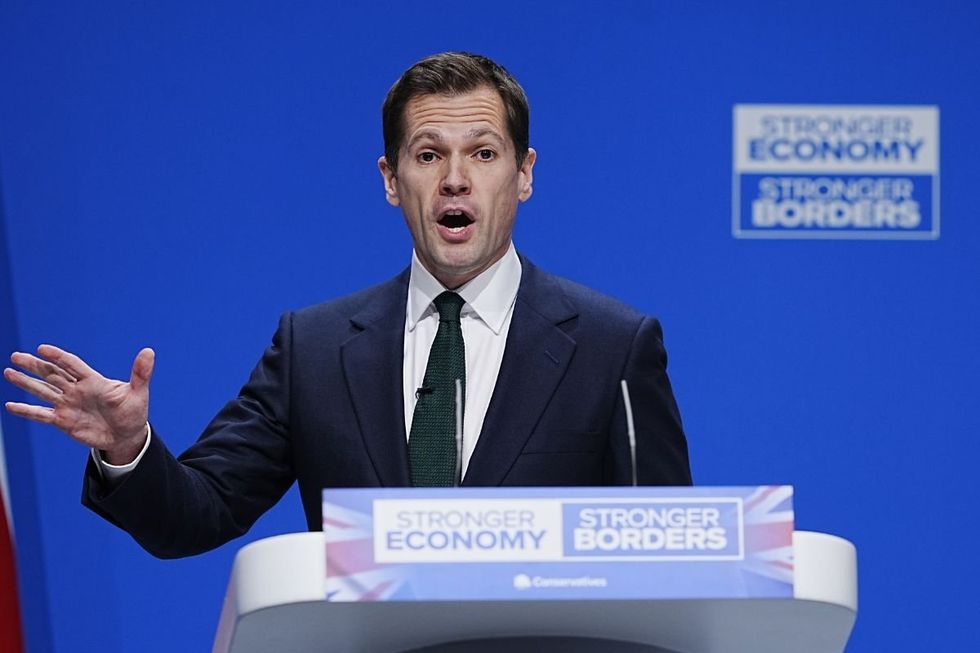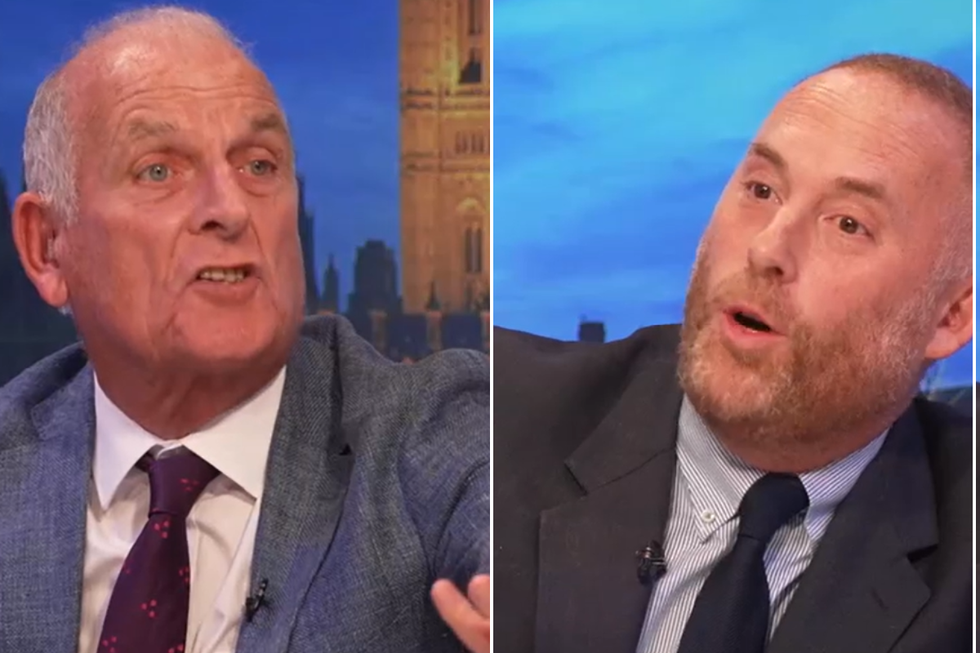A fiery row has erupted on GB News as Sir Jacob Rees-Mogg led a pugnacious debate over Robert Jenrick’s latest argument that British judges are activists.
On Wednesday morning, the Newark MP vowed to axe the “two-tier” Sentencing Council and give greater powers to ministers, if Tories won the keys to No10.
Speaking to a packed hall full of Tories, the MP vowed to axe “activist” judges in a bid to tackle “pro-migration bias” across the judiciary, identifying more than 30 judges he claims to have provided help or free services for open-border organisations.
While some viewed Mr Jenrick’s impassioned speech at Tory Party Conference as full of vim and vigour, political commentator Matthew Stadlen thought otherwise.

“I think it’s a bad day for Robert Jenrick and a bad day for our country,” he declared, adding: “And I think the attack on the judiciary is actually quite sinister.”
“Unless I’ve got my facts wrong, there are thousands of judges, salaried judges in England and Wales.
“Robert Jenrick seems to have been able to identify about 30 judges who have passed links to certain immigration charities,” he recapped.
“I think he may have found 11 judges that he alleges may have been on social media while they are judges, saying perhaps certain things that are political.”
Reiterating that “you cannot be political when you are a judge”, he expressed concern that the Brexit convert is “trying to promote that our judiciary is awash with bias.
“That undermines public confidence in the rule of law,” he criticised.
“My father was a high court judge, and he was very, very careful not to get involved in British politics. And I think it is a mistake when judges do that,” he added.
Inviting former editor of The Sun Kelvin MacKenzie into the discussion, Sir Jacob turned his focus to the way in which judges are appointed, explaining how the lawyers are “appointed on good behaviour”.
This approach, in turn, has been “a great protection of the independence of the judiciary”, the GB News presenter argued.
LATEST FROM TORY PARTY CONFERENCE:
- WATCH NOW: Nigel Farage unable to contain laughter over ‘dead’ Tory Party Conference
- ‘How do you know I’m a man?’ Gender critical activist confronts Tory conference heckler in explosive GB News row: ‘Ridiculous!’
- Kemi Badenoch says Tories WILL play national anthem to end conference after row with MPs
Weighing in, Mr MacKenzie said: “Well, I’m not sure how independent our judges are.
“For instance, the reason, of course, that they are involved with charities that are involved with immigration is because, of course, when there were cases, they were able to be helpful, then they received money, right?
“That was it. So it wasn’t so much political. It was actually receiving money because they end up being paid because the charities pushed the migrants their way, they represent them, they get paid.
So they have a ongoing financial link with these charities because they because because it’s the migrants that go to the charities in the first place. And then we come to the second issue. So there’s a commercial aspect too.

“I know this comes as a surprise to you, Matthew, but actually people make money out of the law, which is the reason most people go into it.
“Not suggesting any judges today are making money,” he hastened to add. “But they did in the past.”
Raising his voice as Mr Stadlen tried to interject, the ex-editor said: “And actually the only way you become an immigrant judge in this country is if you’ve had a long history of representing the very people we’re constantly trying to keep out.”
Firing back, the commentator simply said: “That’s just not true. You’re getting cross because you’re on weak ground.”
“Just look up their CVs!” Mr MacKenzie fumed.
Our Standards:
The GB News Editorial Charter







Follow